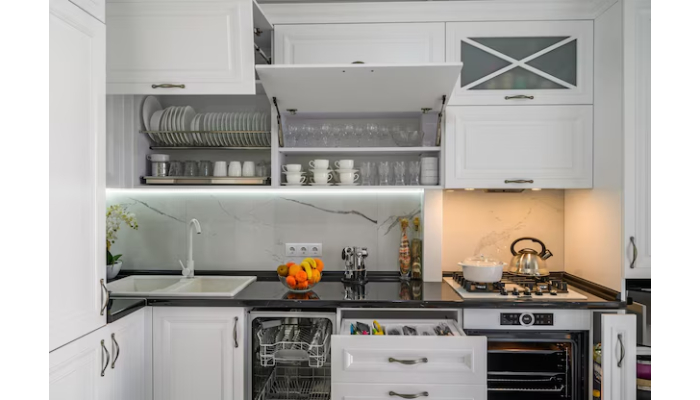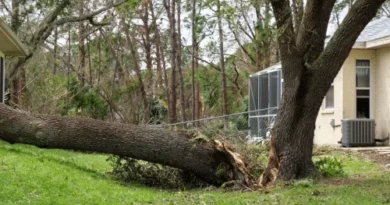What Are the Most Common Red Flags in Deck Builders?
Building a deck is a fantastic way to enhance your outdoor living space, whether it’s for relaxation, entertainment, or increasing the value of your home. However, choosing the right deck builder is crucial to ensuring that your deck is built safely, to code, and within your budget. Unfortunately, there are many deck builders out there who may not be as reliable or skilled as they seem. Recognizing the red flags in deck builders early on can save you from frustration, delays, and potentially costly mistakes.
This article will explore the most common red flags in deck builders and how to spot them before it’s too late.
1. Lack of Licensing and Insurance
One of the first red flags in deck builders is a lack of proper licensing and insurance. Most states and municipalities require contractors to be licensed to ensure they have the skills and knowledge to comply with local building codes. Additionally, insurance is vital for protecting both the homeowner and the builder in the event of an accident or damage to property.
Why This Matters
- Licensing: A licensed builder has proven that they meet the standards set by local authorities, and they are more likely to deliver work that complies with building codes.
- Insurance: Insurance protects you as the homeowner from being financially liable for any accidents that occur on your property during the construction process.
If a deck builder cannot provide proof of both licensing and insurance, this should be considered a major red flag. Without these, you may find yourself responsible for costs or legal issues that arise during the project.
What to Do
Always ask for proof of licensing and insurance. Verify their credentials with the local authorities to ensure they are up to date. If the builder hesitates to provide this information, it’s a clear warning sign.
2. Unclear or Vague Contract Terms
A reputable deck builder should provide a clear, detailed contract outlining the scope of work, timeline, materials, costs, and payment schedule. If the builder is unwilling to provide a written contract or if the terms are vague or unclear, this is a serious red flag in deck builders. A contract helps protect both parties and ensures that there are no misunderstandings during or after the project.
Why This Matters
- Unclear contracts can lead to disputes later on regarding what work was promised, how much will be paid, and when the work will be completed.
- Lack of a contract leaves both parties vulnerable to misunderstandings and financial loss.
A professional deck builder will have no problem putting all terms in writing and will gladly go over the details with you. They should also provide a breakdown of costs and timelines to ensure everything is transparent.
What to Do
Ask for a written contract and carefully review the terms before signing. Make sure it includes a detailed outline of the project, costs, and completion time. If the builder is unwilling to provide a written contract, this is a significant red flag.
3. Pushy Sales Tactics or Unrealistic Promises
Another common red flag in deck builders is when a builder uses pushy sales tactics or makes unrealistic promises. If a builder pressures you to make a decision quickly, insists on signing a contract immediately, or offers a deal that sounds too good to be true, it’s likely they are trying to rush you into a decision without giving you enough time to evaluate your options.
Why This Matters
- Pushy sales tactics can prevent you from thoroughly vetting the builder and assessing whether they are the right fit for your project.
- Unrealistic promises regarding timeline, cost, or scope of work often result in missed deadlines, higher costs, and poor quality.
While it’s natural for a builder to want to secure a contract, they should never pressure you into making a hasty decision. You should always have time to carefully consider your options and review the contract terms.
What to Do
If you feel rushed or pressured, take a step back and reconsider. Reputable deck builders will respect your need for time and won’t rush you into making a decision. If anything feels too good to be true, it probably is.
4. Negative Reviews or Lack of References
One of the easiest ways to assess a deck builder’s reputation is by reading online reviews and speaking to past clients. If a builder has multiple negative reviews, complaints, or lacks reviews altogether, it could be a red flag in deck builders. Customer feedback is crucial because it provides insight into a builder’s work quality, customer service, and reliability.
Why This Matters
- Negative reviews may indicate poor workmanship, missed deadlines, or problems with customer service.
- Lack of reviews or references suggests that the builder might be new or hiding a history of dissatisfied clients.
If the deck builder has numerous complaints about their work or fails to provide references, this is a major warning sign. A reputable builder should have a solid portfolio of past work and positive testimonials from satisfied customers.
What to Do
Check online platforms like Google, Yelp, or Angie’s List for reviews of the builder. Ask for a list of references from previous clients and contact them to ask about their experience. If the builder is hesitant to provide references or has no online reviews, this is a red flag.
5. Unrealistic Bids or Extremely Low Prices
While it’s tempting to go with the cheapest estimate, an unusually low bid can be a major red flag in deck builders. A builder who offers prices that are significantly lower than others may be cutting corners on materials, labor, or quality control. In some cases, they may even end up charging you more later through hidden costs or unexpected charges.
Why This Matters
- Unrealistic bids often mean the builder is using subpar materials, rushing the work, or overlooking important details to save money.
- Low prices might indicate that the builder is desperate for work, but this could come at the cost of quality.
Remember, the saying “you get what you pay for” is often true in construction. While it’s important to stay within your budget, choosing a deck builder based solely on the lowest price could result in poor workmanship and costly repairs down the line.
What to Do
Get multiple bids from different builders and compare them. Ensure the bids are broken down clearly, including labor costs, materials, and any additional expenses. If one bid is significantly lower than the others, ask the builder to explain why their price is so low and whether they are cutting any corners.
6. Lack of Communication and Poor Customer Service
Effective communication is crucial to any successful construction project. If a deck builder is difficult to get ahold of, doesn’t respond to emails or phone calls, or refuses to provide updates on the project’s progress, this is a red flag. Good communication is key to ensuring the project stays on track and that you, as the homeowner, are informed about the status of the work.
Why This Matters
- Poor communication can lead to misunderstandings, delays, and frustrations.
- Lack of updates means you might be left in the dark about important decisions or changes that could affect the project.
A professional deck builder should be responsive to your inquiries and provide regular updates throughout the project. If they ignore your requests for information or don’t return your calls promptly, it’s time to consider finding a different builder.
What to Do
Pay attention to how the builder communicates with you from the outset. If they are slow to respond to your initial inquiry, this is often a sign of how they will handle the project. A reputable builder should maintain open communication and provide you with regular updates during the construction process.
Conclusion
Choosing the right deck builder is critical to ensuring your project is completed successfully, on time, and within budget. By being aware of the most common red flags in deck builders, you can avoid costly mistakes, poor workmanship, and delays. Key red flags in deck builders include lack of licensing and insurance, vague contracts, pushy sales tactics, negative reviews, unrealistic bids, and poor communication.
Take your time to research potential builders, ask for references, and get multiple estimates. Trust your instincts—if something feels off or too good to be true, it probably is. By avoiding these red flags and choosing a reliable, experienced builder, you’ll be on your way to enjoying a beautiful, safe, and durable deck for years to come.




